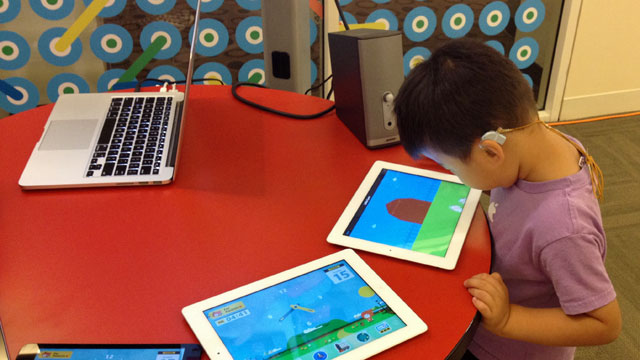A new group of developers is trying to tackle the educational app market, which has huge potential for profits, but has been hard to crack because of parent and teacher skepticism about what's actually considered educational. Zynga, an established commercial game company responsible for hits like Farmville and Words with Friends, is hosting the non-profit accelerator in its building. Now in its second cohort, Zynga's co.lab offers nascent game developers access to advice from experienced game, marketing and product experts.
The co.lab's first group of developers, which included the hit game Motion Math, worked mostly on games with a clear focus on math or reading, but this group is interpreting the definition of education a bit more broadly and attempting more open-ended learning outcomes. What's more, many of the games in this second cohort are targeting the commercial market first, through parents, while other companies, like Filament Games are trying to broaden the use of games in schools.
“Kids are spending a lot of time playing games and parents have no idea if it’s junk food or organic food,” said Esteban Sosnik, executive director of co.lab. As educational games take off, he says parents will be looking for a trusted brand and the right metrics to gauge whether their children are really learning. The co.lab is trying to instill that kind of accountability into the game design process.
Zynga's affiliation with the co.lab is meant to help them develop a profitable business model that will scale, which means starting in the commercial market. But Sosnik says the current cohort of developers wouldn't have been chosen if they hadn't demonstrated their interest in entering the school market as well -- and that’s hard to do. “It’s hard enough to make a successful game,” Sosnik said. “For our entrepreneurs, you need to do that and deliver on an educational promise and get teachers to use it in the classroom.” He laughed. “When you look at it that way, you understand why so many people stay away. But that’s why we hope to create some successful models that will inspire people,” he said.


